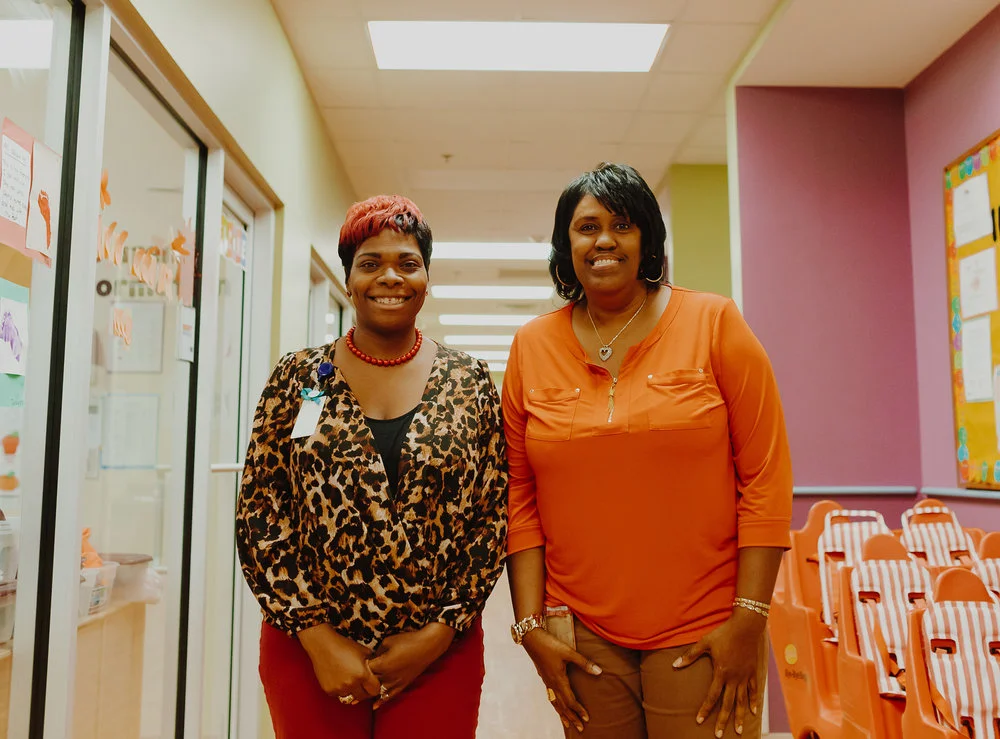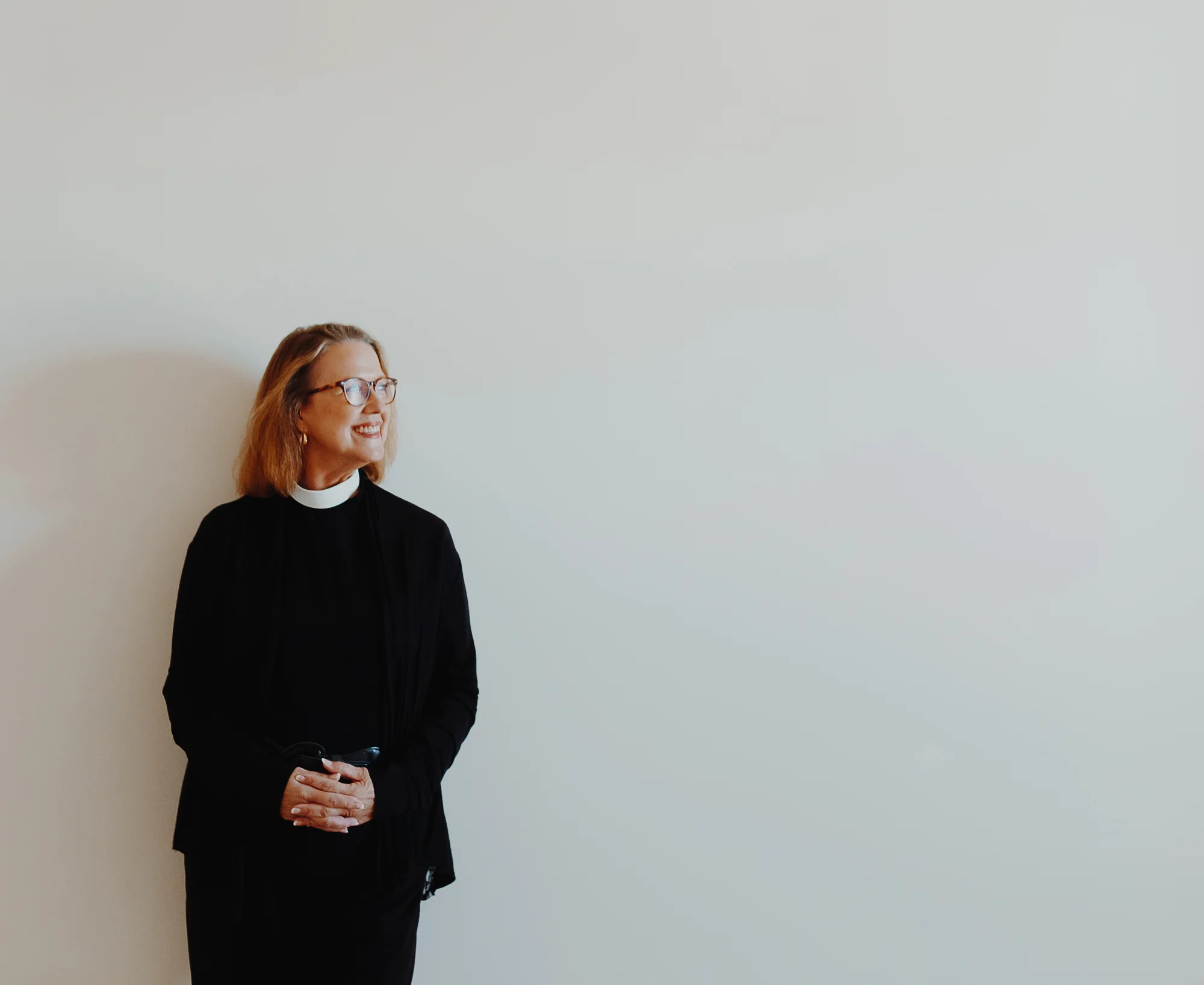Hearing God's Call

There is a John Lennon song that goes, "Life is what happens to you while you're busy making other plans." Two decades after being tapped for service by her rector at Christ Episcopal Church in Norcross, Nancy Yancey says, in a way, that is what happened to her.
Call it destiny or what you will; she describes herself back then as “quite an unlikely candidate for the position” of leading Rainbow Village — a community and program for families dealing with homelessness. The campus staff can serve 30 families or around 100 people at a time in their fully-paid-for $8.8 million facility. Nancy attributes it all to a higher power.
“God just really touched my heart and equipped me with the tools I needed to lead the organization,” she says of her journey there and her improbable start.
“The rector thought I had gifts that I was not aware of that made me a good candidate for the position,” she explains. “I totally disagreed because I was an interior decorator and was freelancing and taking care of my own three young children at home while I worked. Still, that small voice kept calling my name, and after a period of time, I agreed to accept that position on an interim basis while they continued to look for someone who was truly qualified to do the job.
"After starting to put some structure to the ministry and help organize it, her mind changed further, and it became clear she was the one for the job.
“I met the families, and I fell in love with them and their desire to have better lives for themselves and their children,” she says. “And I came to believe that all children deserved the wonderful life that my husband and I were able to provide for our own kids. It became my mission to see that happen for all who come to Rainbow Village.” This year marks Yancey’s retirement as CEO after 24 years of service.
ENOUGH TIME TO HEAL || Rainbow Village is unique in that it is a long-term shelter serving families who have experienced homelessness. After applying and being accepted into the program, families stay on campus for a minimum of one year and up to two years. Other shelters often offer accommodations for 30, 60, or 90 days, maximum. Rainbow Village started as a short-term shelter in a humble duplex called Rainbow House. Over the years, organizers found that short stays didn’t offer enough time for families to stabilize. Yancey saw it firsthand when she met a model mother who had saved up enough money and moved out of Rainbow House. The mother later called on them for help from a domestic abuse shelter.
“It’s a five-year process,” Yancey says. “There’s a lot of trauma related to homelessness. Until that trauma is addressed and healed, families really can’t be expected to be successful.”
Each family is assigned social workers to help them work through the turmoil brought on by chaos, abuse, or being stuck in a cycle of generational poverty. They learn the skills to break out of those cycles or how to climb out of situational poverty that is caused by job loss or divorce. Even after families are stable enough to move to a home of their own and be self-sustaining, they are still in touch with staff and a support network of other alums of the village. This enables them to continue building the life skills they need to keep working on a five-year plan that each family develops while at Rainbow Village.
A PLACE TO BE PROUD OF || Rainbow Village also offers child care during the day for babies and after-school care for older children. In addition to social workers, there is a village dinner and evening program offered twice a week. Children are cared for. Parents have a community. There is stability.
“That’s especially important for the children,” Yancey says.
“Children are the true victims of homelessness,” she explains. “The average age of a homeless person in this country, and here in Georgia as well, is 8 years old. We believe that we need to offer families the time and the support in the community they need so that the next generation does not have to face homelessness again. And those children are the ones that break the cycle. They are the ones because they can see a new opportunity. They see the world through a different lens.”
Visitors are often very surprised by how nice Rainbow Village is, with its clean, bright two and three-bedroom apartments.
“Yes, they are nice. This is a community that anyone would be proud to live in. And our standard has always been, ‘Would we live here with our children?’ And if we wouldn’t, then why should we ask anyone else to?”
THE HIDDEN HOMELESS || Yancey is also thankful that Rainbow Village opens people’s eyes to the needs of today’s homeless, who can look different from what people might think.
“The largest percentage of the homeless population is now in the suburbs and families with children,” Yancey says. “So it’s the families in our community — that are in your workplace. They’re in your church. They’re hidden either in overcrowded conditions, with friends and neighbors, or they are in domestic violence centers, or they are in shelters, or they are sleeping in their cars. You know, they’re not out on the streets; so it’s easy to deny that there’s a problem outside the [Atlanta] perimeter for homeless people because you don’t see them often.”
As Yancey retires, she steps away from this part of her journey with a full heart. She and the Rainbow Village staff have helped serve more than 1,000 families through the years.
“My work is done here, and I feel grateful,” she says. “I feel grateful for the opportunity to have been a part of this wonderful organization. But I do believe that I have fulfilled God’s call to me here. And I’m now in discernment about the next phase of my journey.”
In addition to her work as CEO of Rainbow Village, Nancy Yancey is an ordained deacon in the church. Here, she shares her thoughts on how God led her to serve.
ON WHAT HER RECTOR SAW IN HER WHEN HE ASKED HER TO SERVE, WHICH SHE COULDN’T SEE IN HERSELF
I think that’s the blessing. We are able to see gifts in others that they can’t see for themselves. And I believe what they saw in me was compassion, empathy, and the ability to just strive for justice — strive for justice and peace.
I mean, here we go with our Baptismal Covenant, I think that he saw those traits in me that I could not really see for myself. But when I was put in that position to exercise those gifts, oh my goodness. Oh my goodness. I mean, look what’s happened.
That’s my life story, that someone saw something in me I couldn’t see in myself and tapped me on the shoulder and said, “Yes, you can. I believe in you.” And now I’m tapping people on the shoulder and saying, “Yes, you can. I believe in you.”
So it’s a gift that I’ve tried my best to pass on to as many people as I can because I do see hope and promise, particularly in these children. And the potential for a wonderful life that God has prepared for them. So remaining true to God’s call for my life led me to ordination in 1998 as a deacon in the Episcopal Church. We take the church to the world and bring the world to the church. And I’ve been able to live in God’s world and to give my best to these families.
ON FINDING HER PURPOSE AND WHAT SHE’S MEANT TO DO
Well, for me I think it was being prayerful and paying attention. Paying attention, taking the time to pay attention to what Frederick Buechner would call your life’s calling. He’s quoted in “Let Your Life Speak,” by Parker J. Palmer — such a wonderful book that really inspired me.
But I think that if we pay attention to the opportunities and challenges that God presents us with and trust in God to lead and guide us in the way that he/she would have us go, tremendous things can happen. So for me, my life plan — my, Nancy Yancey’s, “life plan” — was to be a famous interior decorator and make lots of money and live happily ever after, right? God’s plan for my life was to become — as The Rev. Joel P. Hudson, the rector that tapped me on the shoulder at Christ Church, says — to become a designer of souls. You know, to create different interior spaces for people. I love, love that analogy because I hope and pray that’s what I’ve been able to do here — create space: a space for families to come and know God and to find their God-given potential just as I have.




